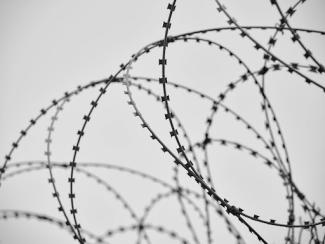
Police officers are accustomed to authority, weapons, and use of force. That bleeds into their home lives, where they are more likely to "control, humiliate, and discipline lovers and family members."
Prison guards share a similar experience because prison isn't just a location. It's a culture of violence.
Routledge Studies' "Contesting Carceral Logic" describes the logic of prison as "curbing" the violence of incarcerated people with the "superior" violence of prison officials. It's contradictory logic, yet prison guards are both formally and informally encouraged to exact control and obedience through violence, setting an "us vs. them" mentality.
This violence is especially deadly for Black incarcerated people. Though the guards are in power, it's detrimental to their health, too. Guards disproportionately experience conditions like PTSD. And, like police officers, it's dangerous for their families.
At home, guards are frequently verbally and physically abusive. The logic of meeting violence with violence and seeking control is brought home. Codes of silence continue to be upheld by colleagues and state agents.
Even in a world without physical prisons, prison guards, their families, and formerly imprisoned people will exist in our communities. The carceral culture entrapping us all must be dismantled. And to eradicate deep-rooted violence, we have to understand where it comes from and how it works.